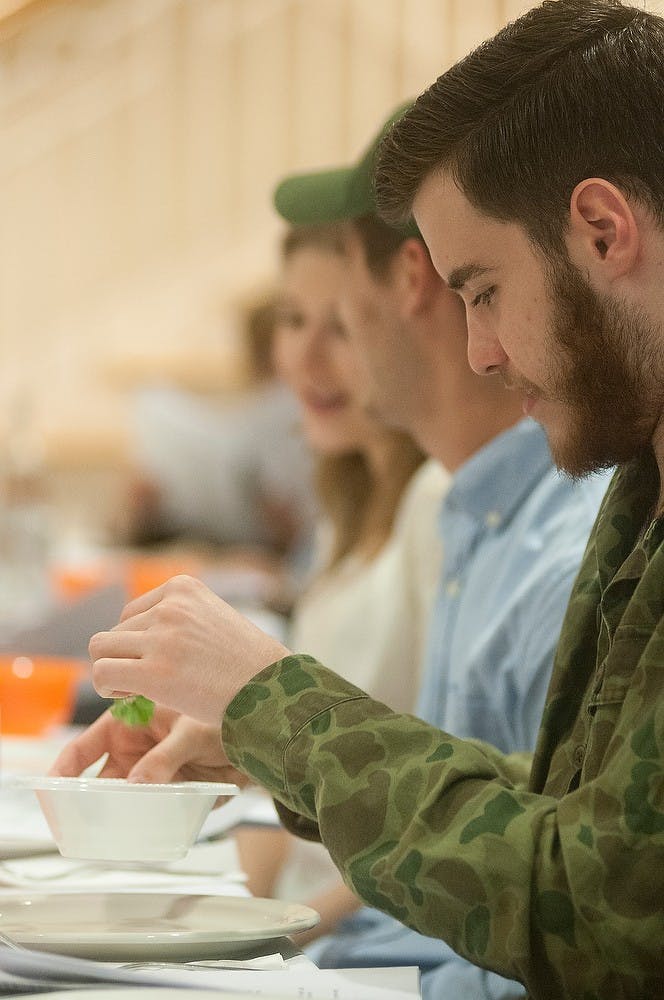The Jewish people have faced a diaspora, the widespread flight from their historic homeland due to religious and ethnic persecution, for more than two millennia. For that reason, some Jews who celebrate Passover outside of Israel celebrate one of the most important holidays in the religious calendar for eight days, one more than Jews in Israel.
Students and community members gathered for a Passover Seder on Friday and Saturday nights at the Lester and Jewell Morris Hillel Jewish Student Center to mark the celebration of Passover.
Passover began at sundown on Friday and is traditionally marked by a Passover Seder, a meal commemorating the Exodus of the Jewish people from Egypt. Passover continues until April 11.
The term “passover” or “pesach” in Hebrew designates the final of the 10 plagues of Egypt, where the Israelites were instructed by God to mark the doorposts of their homes with the blood of a slaughtered lamb so God would know to “pass over” the Israelites and not slaughter their firstborns as he did the firstborns of the Egyptians.
“The main part about Passover is we want to tell the story and we want to celebrate our freedom,” said Justin Polk, program associate for Hillel.
All food at the celebration was kosher, a specific way of preparing food in a Jewish setting, and no outside food was allowed in the building because it had been cleansed for the holiday.
Each item of food held some symbolic significance to the story of the Exodus and a number of Hebrew prayers and stories from the Torah were read. All of these were contained in a “Haggadah,” a Hebrew word meaning “telling” and “by reading the Haggadah we are observing the biblical commandment to tell the story of the Exodus from Egypt,” according to a handout given to those at the Seder.
Hillel held two Seders over the weekend and Polk, who helped lead the Seder, said they wanted to give people a place where they could celebrate the holiday. At one point a student from New York who couldn’t make it home over the weekend personally thanked him for the opportunity to be there.
“This Seder that we do here, it’s for us to allow the students to be able to celebrate the holiday and it’s really important for us to keep our doors open,” Polk said.
The Seder ended with this phrase of both literal and figurative meanings, symbolizing both the diaspora and the hope to be together again the next year — “L’shanah haba’ah b’yerushalayim,” or, “Next year in Jerusalem.”







